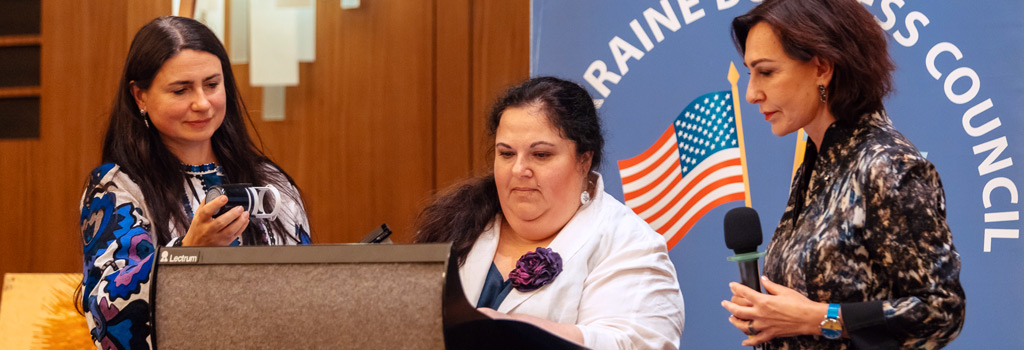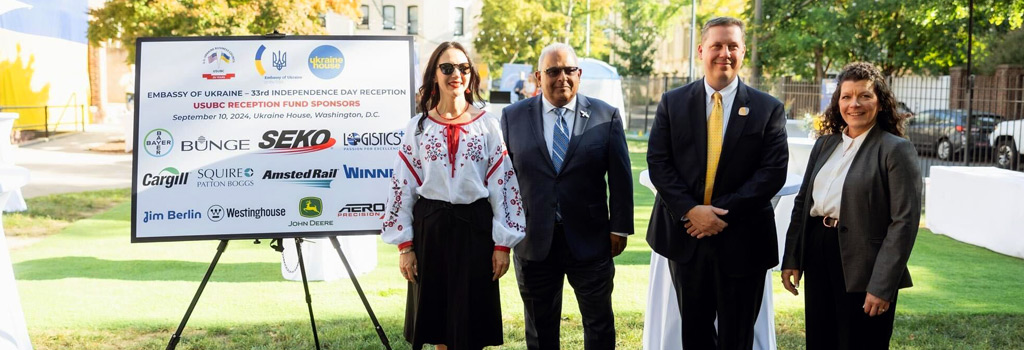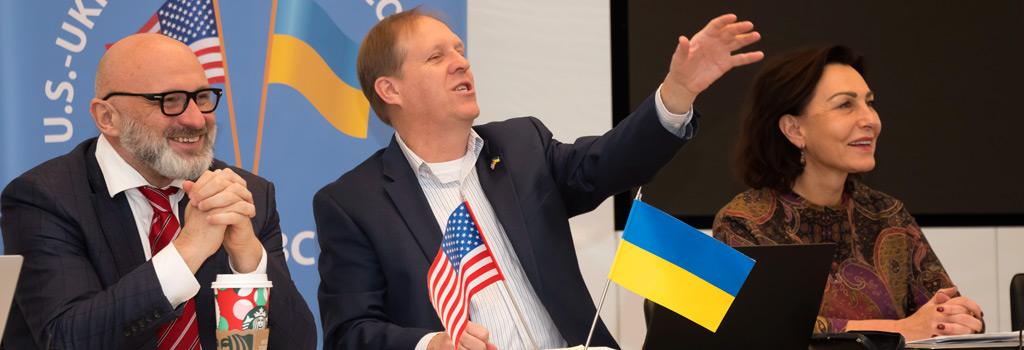Featured Galleries USUBC COLLECTION OF OVER 160 UKRAINE HISTORIC NEWS PHOTOGRAPHS 1918-1997
 Holodomor Posters
Holodomor Posters

Banking Sector Regulatory Reform: The Final Countdown?
 By Markian Bilynskyj, Vice President for Field Operations,
By Markian Bilynskyj, Vice President for Field Operations,
U.S.-Ukraine Foundation
Wash D.C., Mon, April 6, 2020
KYIV - Following its March 30 adoption in the first reading, the banking sector regulation reform (or anti-Kolomoyskiy) law has encountered the predicted obstacles during its preparation for a second - and perhaps even simultaneous third and final - reading. The scale of the attempted stalling is impressive even by the standards of Ukrainian parliamentary practice.
Proposed changes had to be submitted on April 6. Last reports indicated that more than a record thirteen thousand (13,000) amendments were submitted. By some accounts, the formally unaligned deputy Anton Poliakov (who was thrown out of the Servant of the People faction last November for violating voting discipline) ,was personally responsible for six thousand. The accuracy of this Stakhanovite obstructionism will only become clear once the amendments are officially tabulated for another extraordinary Rada session scheduled, according to Speaker Razumko, for either Thursday or Friday.
Clearly, the attempts to block the passage of legislation necessary for facilitating Ukraine's access to critically needed IMF funds reflect what is at stake. But they are likely to fail. On a technical level, many of the amendments will be bundled together in committee and voted on - and probably dismissed - in batches by the Rada.
Precedent is clearly in President Zelensky's favour. His predecessors very rarely lost a vote on key legislation and this is unlikely to be the case this time around despite an obvious split in the presidential supermajority in the Rada. Procedural regulations notwithstanding, more often than not in these kinds of situations it's been a case of where-there's-a-presidential-will-there's-a-way.
An unlikely, but possible, alternative outcome would see the amendment process unfold in a more protracted manner. This scenario is based on the argument that some of the law's key supporters - including even possibly the president who has enlisted the oligarchs as allies in the fight against the corona virus pandemic - do not feel that now is the time to confront them with such legislation, despite Ukraine's acute needs and the financial community's insistence.
A key premise appears to be that commencing the amendment process might be sufficient to release the funds while delaying the actual adoption of the banking law for as long as possible. (In comparison, the land reform law adopted in full on March 30 required the consideration of approximately 4,300 amendments over more than two months.) In other words, a classic Ukrainian case of wanting to have one's cake and eat it.
Such a scenario seems little more than self-deception. The international financial community has already expressed some displeasure over the quality of the land reform law. To now try to draw out the adoption of much anticipated legislation would surely lead to damaging repercussions for Ukraine. Indeed, the next session of the Rada - more than events of a week ago - will likely provide a truer measure of President Zelensky's commitment and ability to rein in the oligarchs.
Robert A. McConnell is a co-founder of the U.S.-Ukraine Foundation and Coordinator of External Relations for the Foundation’s Friends of Ukraine Network. He is Principal of R.A. McConnell and Associates. Previously, he has served as head of the Government Advocacy Practice at Gibson, Dunn & Crutcher, Vice President – Washington for CBS, Inc, and Assistant Attorney General in the Department of Justice during the Reagan Administration. rmcconnell@usukraine.org

















